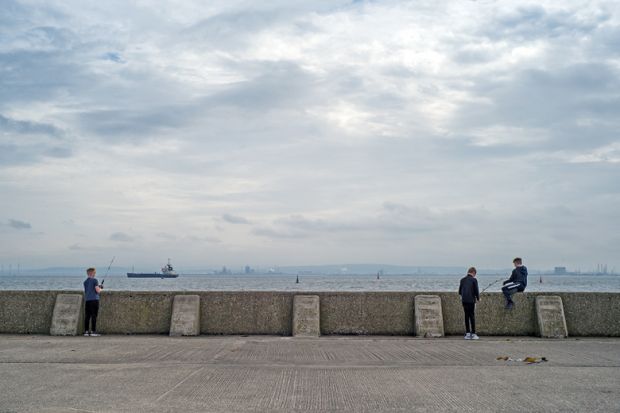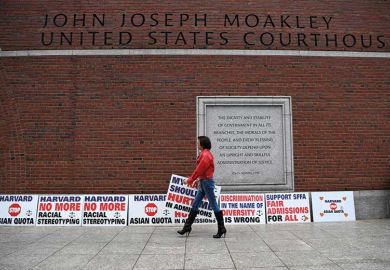Existing measures of socio-economic disadvantage in England should be replaced by the creation of a “national widening access cohort” based on pupils’ parental income, which should be the focus of university outreach activities, researchers say.
A report by AccessHE, a London-based widening participation network, says that data on family income should be collected on schoolchildren aged between 11 and 13 so that pupils from the most deprived backgrounds can be targeted for access activities when they reach Year 9.
AccessHE argues that this would allow outreach to be directed much more effectively at those who really need support, in contrast to the weaknesses of existing datasets, in particular area-based measures such as the participation of local areas (POLAR) classification.
POLAR groups neighbourhoods across the UK based on the proportion of the young population that participates in higher education, but criticism of the measure has been mounting since the English higher education regulator, the Office for Students, put it at the heart of national widening access targets.
Critics have highlighted that POLAR fails to take account of diversity within neighbourhoods: recent Durham University research found that just 13 per cent of those in receipt of free school meals at age 15 who went on to higher education lived within the most disadvantaged areas, as identified by POLAR.
The overall high participation rate in London has left the capital with very few low-participation areas, meaning that its universities – which often recruit heavily from their local neighbourhoods – have relied on other measures of disadvantage, and might struggle to meet OfS targets even if they are successfully diversifying their intake.
Other measures of disadvantage have their own weaknesses, according to the AccessHE report, which says that children whose family incomes are below the “living wage” are missed by the focus on free school meal eligibility.
AccessHE argues that widening participation efforts could be delivered – and measured – much more effectively if they were directed at its proposed national cohort, made up of pupils from families earning less than an agreed income threshold. The network has suggested that the proposal could be piloted in London, and that the OfS could commission an organisation to lead data collection.
Graeme Atherton, head of AccessHE and one of the authors of the report, said that measuring economic disadvantage individually would get over the “ecological fallacy” that an individual’s characteristics can be inferred from the characteristics of a wider population.
Although using a range of measures can be seen to offer a comprehensive picture when it comes to outreach work, Dr Atherton said this resulted in institutions combining different metrics in different ways and possibly misunderstanding what constitutes disadvantage. This was “both inconsistent and burdensome”, he said.
“Overall, we’ve got many universities doing different things, while persisting with a measure for socio-economic disadvantage that doesn’t work,” he said.
Dr Atherton said that AccessHE’s report was “an attempt to push things forward”. “There’s been lots done about why POLAR is wrong, but we need to have a debate about what else we can do. [This] may end up not being our [final] suggestion, but we need to start identifying what else is there,” he said.
Chris Millward, director for fair access and participation at the OfS, said POLAR was a “robust and widely used measure of under-representation in higher education”.
“Universities, colleges and other higher education providers should use POLAR in conjunction with a range of other data and information to help them better understand the nature of their access and participation gaps and the best ways to close them,” Mr Millward said.
Register to continue
Why register?
- Registration is free and only takes a moment
- Once registered, you can read 3 articles a month
- Sign up for our newsletter
Subscribe
Or subscribe for unlimited access to:
- Unlimited access to news, views, insights & reviews
- Digital editions
- Digital access to THE’s university and college rankings analysis
Already registered or a current subscriber? Login








